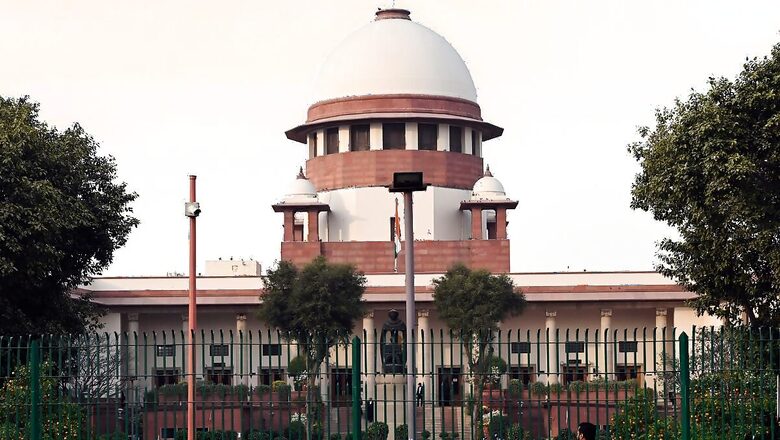
views
In a significant decision regarding the eviction of residents living along the railway tracks in Uttarakhand’s Haldwani, the Supreme Court on Wednesday halted any immediate removal plans. The court directed the Uttarakhand government to formulate a rehabilitation scheme within four weeks for the affected individuals and present it to the court for review by September 11. In its order, the Supreme Court underscored the urgency of the matter, particularly for the approximately 50,000 residents living in 4,365 households in the affected area. During the hearing, the court reviewed videos and photos demonstrating that many families have resided there for years.
Highlighting the humanitarian aspect of the case, the Supreme Court emphasised that the residents in question have been living there for decades, underscoring their status as human beings deserving of consideration. In a pointed remark, the court expressed concern over the potential cruelty of hasty evictions, urging a balanced approach from all stakeholders, including the state and the railways.
The apex court stated that the most important thing was that those who have been living in the area are humans. ‘They have been living there for decades… Courts cannot be cruel. Courts also need to maintain balance. And the state also needs to do something,’ remarked the Supreme Court during the proceedings.
The court also questioned the manner in which the issue was raised, suggesting that proper legal processes should be followed rather than relying solely on public interest litigation (PIL) for eviction notices.
The Supreme Court addressed concerns raised by the railways regarding the need to expand platforms for Vande Bharat trains along the railway tracks in Haldwani. Acknowledging the railway’s infrastructure requirements, the court stressed the importance of balancing development with human considerations.
“We understand the railways’ position, but there needs to be a balance,” remarked the Supreme Court during the proceedings, further questioning about the rehabilitation plan. The court also noted the railways’ admission that they lack information about their lands and emphasised the need for a forward-looking approach that avoids forest areas.
The court called for prompt action, urging the central government to make a policy decision on the matter. It directed the Chief Secretary of Uttarakhand and officials from the relevant central government departments to convene a meeting to devise a comprehensive rehabilitation plan that garners consensus among all stakeholders.
It is imperative to identify and assist affected families without delay, stated the Supreme Court, instructing that work on the rehabilitation plan commence within four weeks. The court scheduled the next hearing for the fifth week to monitor progress.
The disputed land accommodates about 50,000 people, predominantly Muslim, from more than 4,000 families. The Supreme Court’s intervention reflects a critical effort to address the complex issue of resettlement while ensuring justice and humanitarian considerations are upheld.




















Comments
0 comment